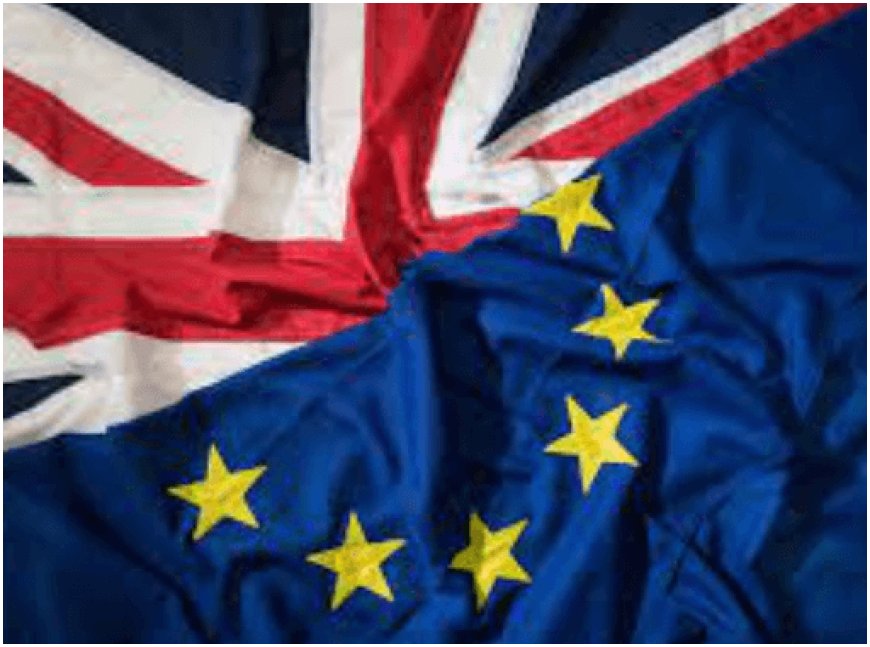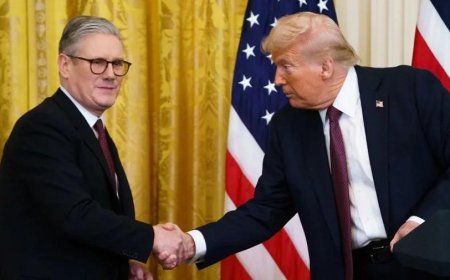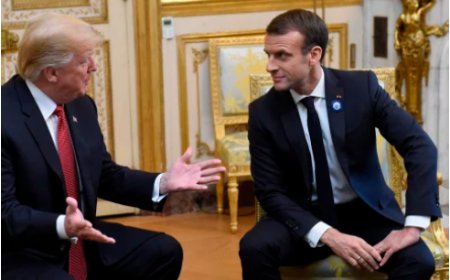UK and EU Forge ‘Reset’ Deal Projecting £90bn Growth
UK and EU Forge ‘Reset’ Deal Projecting £90bn Growth

The United Kingdom and the European Union have entered into a new agreement designed to reset their post-Brexit relationship, focusing on enhanced cooperation in areas including trade, defense, and energy.
This pact, announced recently, aims to mend and strengthen ties that have been strained since the UK left the EU, and it carries significant economic and strategic implications for both parties. According to Treasury officials, the renewed partnership is projected to add up to £90 billion to the UK economy over the coming years, a substantial boost that highlights the deal’s potential impact on growth and stability.
The agreement comes at a critical time when both the UK and EU are seeking to navigate a complex global environment marked by economic uncertainty, shifting geopolitical alliances, and the urgent need for energy transition. Trade remains the backbone of UK-EU relations, and this reset deal seeks to simplify processes that have been complicated by new regulations and customs requirements since Brexit. By addressing issues like tariffs, regulatory alignment, and border checks, the agreement is expected to facilitate smoother commerce, lower costs for businesses, and improve the efficiency of supply chains. These changes could make a tangible difference for exporters and importers, benefiting industries from manufacturing to retail.
Defense cooperation is another key pillar of the new deal. The UK and EU have committed to working more closely on security challenges, intelligence sharing, and joint military exercises. This is especially pertinent as the region faces threats from geopolitical instability and emerging security concerns. Enhanced collaboration is seen as mutually beneficial, strengthening the ability of both the UK and EU member states to respond effectively to crises and protect their citizens. This dimension of the deal signals a recognition that security interests transcend political differences and that a coordinated approach is essential in today’s interconnected world.
Energy cooperation also features prominently in the agreement, reflecting shared priorities around sustainability and energy security. Both sides plan to collaborate on renewable energy projects, grid integration, and innovation in clean technologies. This is aligned with broader climate goals, including commitments to reduce carbon emissions and transition away from fossil fuels. By working together, the UK and EU hope to accelerate the development of green energy infrastructure and improve resilience against potential supply disruptions. The cooperation could also open doors for investment and joint ventures in emerging sectors such as hydrogen and offshore wind.
The economic benefits projected by Treasury officials form a cornerstone of the deal’s appeal. Analysts estimate that by eliminating many post-Brexit trade frictions and fostering closer regulatory cooperation, the UK economy could see an injection of approximately £90 billion in value over the next decade. This boost is anticipated to come from increased exports to the EU market, greater foreign direct investment, and more efficient cross-border business operations. While the exact timing and distribution of these gains remain uncertain, the forecast underscores the importance of constructive relations with Europe for the UK’s economic trajectory.
Political responses to the deal have been mixed but generally positive. Labour leader Sir Keir Starmer hailed the agreement as heralding "a new era" in UK-EU relations, emphasizing the necessity of pragmatic cooperation to protect jobs, enhance security, and promote economic growth. Starmer’s endorsement signals a strategic shift within the Labour Party toward engagement with European partners rather than opposition, reflecting evolving political dynamics within the UK. However, some domestic voices remain cautious or skeptical, concerned that closer ties might infringe on British sovereignty or limit the country’s flexibility to pursue independent policies.
These reservations highlight the ongoing debate within the UK about the balance between integration and autonomy in post-Brexit policymaking. While many acknowledge the economic and security benefits of closer cooperation with the EU, others fear that too deep a relationship could entangle the UK in regulatory regimes or political commitments that run counter to the original goals of Brexit. Navigating these divergent perspectives will be critical as the government works to implement the agreement and communicate its advantages to the public.
From the EU perspective, officials welcomed the deal as a constructive development that maintains strong links with a key neighbor and trading partner. The agreement is seen as a practical framework that respects the EU’s core principles while enabling pragmatic cooperation on shared challenges. It represents an effort to stabilize relations and reduce uncertainty, which benefits businesses and citizens on both sides. The deal also aligns with the EU’s broader strategic objectives of promoting regional stability, enhancing energy security, and strengthening collective defense mechanisms.
Beyond trade, defense, and energy, the agreement includes provisions to foster collaboration in innovation, research, digital economy, and environmental standards. These areas reflect the complex and interconnected nature of modern international partnerships, where progress in one sector often depends on advances in others. By aligning policies and encouraging joint initiatives, the UK and EU aim to create a competitive and sustainable economic environment capable of responding to future global challenges.
For businesses operating across UK-EU borders, the reset deal promises greater clarity and predictability. After years of adjustments and uncertainty since Brexit, companies are eager for a stable framework that facilitates smoother transactions, reduces compliance burdens, and encourages investment. Sectors such as manufacturing, finance, and logistics stand to benefit from reduced costs and faster operations. However, many industry leaders stress that successful implementation and ongoing dialogue will be crucial to realizing the full potential of the agreement.
As the UK and EU begin to put the terms of the deal into practice, both parties have committed to establishing mechanisms for monitoring progress, resolving disputes, and adapting to changing circumstances. These structures are designed to ensure that cooperation remains effective and responsive, minimizing the risk of conflict or misunderstanding. This flexible approach reflects lessons learned from earlier post-Brexit arrangements and aims to foster a durable partnership.
Overall, the UK-EU reset deal marks a significant moment in the evolution of their relationship. It reflects a mutual recognition that cooperation yields benefits that transcend political divisions and that future challenges require collective responses. While domestic debates within the UK will continue, the agreement offers a pathway toward enhanced economic growth, improved security, and greater energy sustainability. The projected £90 billion economic boost underscores the tangible value of this renewed partnership, highlighting the possibilities that arise from working together in a complex and rapidly changing world.
What's Your Reaction?
 Like
0
Like
0
 Dislike
0
Dislike
0
 Love
0
Love
0
 Funny
0
Funny
0
 Angry
0
Angry
0
 Sad
0
Sad
0
 Wow
0
Wow
0














































